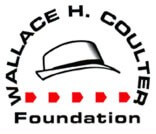Viterbi Graduate Student Association
The Viterbi Graduate Student Association (VGSA) promotes interaction among the graduate students of the Viterbi School of Engineering, USC with various academic and social activities. Some of our activities provide cultural awareness, while other activities provide fun and excitement. Most importantly, at all of these activities, graduate engineering students can meet fellow engineering students. VGSA also tries to address the needs and concerns of graduate engineering students. We have senators representing each engineering department and a graduate student liaison. Each board member is focused on providing specialized assistance for the graduate students of Viterbi.
http://vgsa.usc.edu/
Alfred E. Mann Institute
The Alfred E. Mann Institute for Biomedical Engineering at the University of Southern California (AMI-USC) is a non-profit organization that supports research, development and commercialization of biomedical devices and other technologies. The Institute provides philanthropic support for biomedical device development that can significantly impact healthcare. AMI is an incubation center devoted to accelerating the commercialization of biomedical devices by nurturing promising biomedical technologies.
Mathworks
Mathworks is a worldwide leader in the development of technical computing software for engineers and scientists, including their widely-circulated MATLAB and Simulink products. Their products are a fundamental component of research and development in both academia and industry, and Mathworks-based platforms span fields including bioinformatics, image processing, biochemical modeling, and biostatistics.
Graduate and Professional Student Senate
The Graduate and Professional Student Senate (GPSS) is the official voice of the graduate and professional student body at University of Southern California. Elected officers, senators (department/school representatives), and special interest committees tackle issues specific to graduate and professional students and provide venues for interaction beyond the academic realm. The GPSS funding comes from the programming fees, and this money is used to provide advocacy, social, academic, and community service events, and funding for student groups throughout the year.
http://www.gpssusc.com
Coulter Foundation
The Wallace H. Coulter Foundation was established in 1998 by its benefactor, Wallace Coulter, founder and Chairman of Coulter Corporation. The Foundation continues Wallace’s practice of providing risk capital for innovative initiatives through its grant programs. The largest of these promotes academic translational research based in biomedical engineering. By implementing industry best practices, this process accelerates the translation of promising technologies into practical advances that improve patient care. The Foundation also collaborates with leading medical societies to bring the latest education and standards of care to resource-limited countries. Finally, working with Asian American organizations, the Foundation is building a consortium that establishes one cohesive community to promote collaboration and partnership.
Stevens Center for Innovation
The USC Stevens Institute for Innovation is a university-wide institute in the office of the Provost designed to harness the creative thinking and innovative work at all of USC’s 17 professional schools, the USC College, and research centers across campus to build a multidisciplinary approach to innovation. To empower USC innovators to make maximum societal impact with their ideas, the USC Stevens Institute identifies, nurtures, protects, and transfers to the market the most exciting innovations from USC, and in turn, provides a central connection for industry seeking cutting edge innovations in which to invest. Furthermore, the USC Stevens Institute develops the innovator as well as innovations, through educational programs, community-building events, and showcase opportunities.
![]()
Edwards
The Edwards Life sciences is a global leader in the science of heart valves and hemodynamic monitoring. They partner with physicians to innovate products designed to help patients live longer, healthier and more productive lives. They focus on medical technologies that address large and growing patient populations in whch there are significant unmet clinical needs, such as structural heart disease and critical care monitoring. Their technologies are categorized into four business units - heart valve therapy, critical care, cardiac surgery systems and vascular - each with a rich history and unique patient focus.
http://www.edwards.com
Biomimetic MicroElectronic Systems
NSF Engineering Research Center for Biomimetic MicroElectronic Systems (BMES) was established in September 2003 with funding from the National Science Foundation. Our vision is to develop the science and engineering of novel biomimetic microelectronic systems based on fundamental principles of biology. The newly developed systems will allow bi-directional communication with tissue and by doing so enable implantable/portable microelectronic devices to treat presently incurable human diseases such as blindness and memory loss. The overall technical merit of this proposal lies in developing disruptive rather than incremental advancement in technology.







